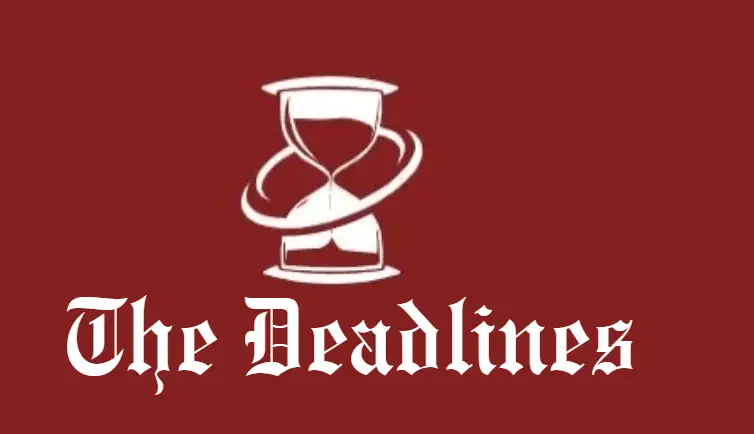The keyword “Thinjen leaked” has generated significant attention online, becoming the subject of heated discussions and speculation. The incident highlights growing issues related to privacy, security, and public exposure in the digital world. Whether the term refers to leaked videos, personal data, or sensitive information, the event has far-reaching consequences. This article provides a comprehensive analysis, covering the causes, psychological and social impact, public reaction, legal implications, and preventive measures to protect privacy.
Table of Contents
Toggle1. What Does “Thinjen Leaked” Refer To?
The phrase “Thinjen leaked” suggests that something private, confidential, or sensitive associated with “Thinjen” was released to the public without permission. This could involve personal videos, photos, private conversations, or business-related documents. Such leaks are disruptive and often cause significant distress to those involved.
2. The Viral Nature of the Thinjen Leak
The internet’s rapid spread of information played a crucial role in amplifying the leak. Social media platforms like Twitter, Reddit, and Instagram were instrumental in driving the conversation. Hashtags related to the leak trended across these platforms, and rumors spread quickly. Users engaged out of curiosity, sharing opinions and seeking more information.
Even if some information was inaccurate or misleading, the speed of online discussions made it nearly impossible to contain the story. Attempts to delete or block the content were often too late, as it had already gone viral.
3. Psychological and Emotional Impact of Leaks
Leaks involving personal information can cause severe emotional distress to those affected. Many individuals experience feelings of betrayal, embarrassment, and fear. In extreme cases, they may suffer from anxiety, depression, or social withdrawal due to public scrutiny. Trust issues may develop, straining personal relationships with family, friends, and colleagues.
Dealing with public backlash can be overwhelming. Social media users, often hiding behind anonymity, contribute to the pressure by posting insensitive comments. Victims of leaked videos or personal images may struggle to resume normal life due to the fear of being recognized or ridiculed.
4. The Role of Social Media in Spreading Leaks
Social media platforms amplify both the spread and impact of leaks. Their algorithms prioritize high-engagement content, including sensational material. Leaked content, even if harmful, generates massive engagement through likes, shares, and comments. This behavior makes it challenging to stop the spread of such material.
While platforms claim to have mechanisms for removing sensitive content, the speed at which it spreads often renders these efforts ineffective. Some users re-upload content under altered tags and descriptions, further complicating removal efforts.
5. Legal Ramifications of the Thinjen Leak
Sharing or distributing leaked content without consent is illegal in many countries, especially when it involves personal data or compromising material. Depending on the content type, violators may face criminal charges, fines, or imprisonment. Companies that fail to protect private information may also face lawsuits and penalties.
Governments are updating cybersecurity and privacy laws to address such incidents. Authorities may investigate the source of the leak, and courts can issue injunctions to limit further distribution.
6. The Social Dynamics Behind Leaks
Why do leaks like this gain so much attention? One reason is the public’s fascination with private material, especially controversial content. The internet enables users to engage anonymously, encouraging interaction without accountability. Scandals attract significant attention, even if it means crossing ethical boundaries.
Leaks also reflect the blurred lines between public and private life. Curiosity drives people to engage with leaked content, often leading to unintended harm for those involved.
7. Steps to Protect Yourself from Leaks
Both individuals and organizations must take proactive steps to prevent leaks. Here are some effective ways to protect privacy in the digital age:
- Use Strong Passwords: Create unique passwords for each platform to prevent breaches.
- Enable Two-Factor Authentication (2FA): Add extra security to prevent unauthorized access.
- Beware of Phishing Attempts: Avoid clicking suspicious links or downloading unverified files.
- Encrypt Sensitive Data: Use encryption tools to make information unreadable to unauthorized users.
- Monitor Your Digital Footprint: Regularly review and manage the information available about you online.
- Train Employees on Cybersecurity: Organizations should provide ongoing cybersecurity training to prevent human errors.
8. What Can Be Done to Prevent Future Leaks?
While leaks may never be entirely preventable, strong cybersecurity practices can reduce risks. Organizations should conduct regular security audits and implement strict access controls to limit the number of people with access to sensitive information.
Governments and institutions must also strengthen data protection laws and ensure that violators face consequences. Public awareness campaigns can help promote ethical online behavior, discouraging engagement with leaked material.
9. The Thinjen Leak and Its Broader Implications
The Thinjen leak raises important questions about privacy and accountability in the digital world. It shows how vulnerable individuals and organizations are to data breaches and underscores the need for cybersecurity awareness. The incident also highlights the lack of clear boundaries between public and private life, leading to unintentional harm.
Increasing awareness about cybersecurity and ethical behavior is crucial as such incidents become more common. Whether the leak involves personal data, business information, or media content, the consequences can be severe, damaging reputations and eroding trust.
10. Conclusion: Lessons from the Thinjen Leak Incident
The “Thinjen leaked” controversy provides important lessons about responsibility, security, and digital ethics. In an era where information spreads rapidly, individuals and organizations must be vigilant about protecting their data. The public, too, plays a role by choosing not to engage with leaked material and respecting privacy boundaries.
As more leaks make headlines, it becomes clear that society must balance freedom of information with respect for personal privacy. The Thinjen leak serves as a reminder of how important it is to safeguard digital lives and promote responsible online behavior. Learning from such incidents helps us navigate the challenges of the digital world more wisely, ensuring a safer and more respectful internet for all.
Also Read: Caden Crain Age and His Incredible Journey in 2024




